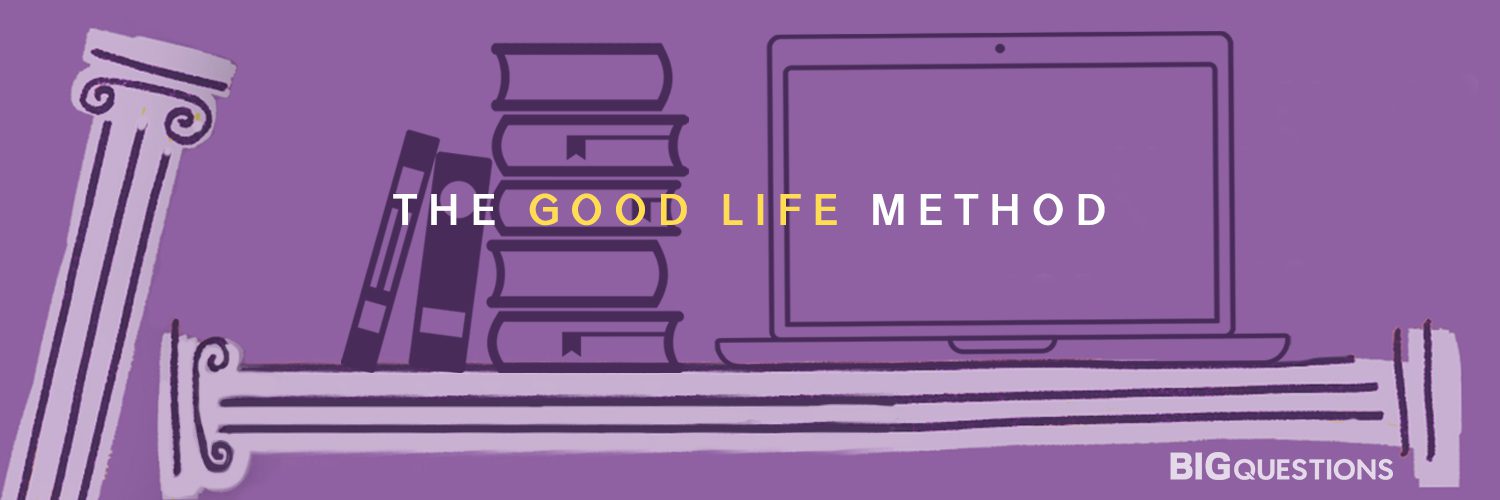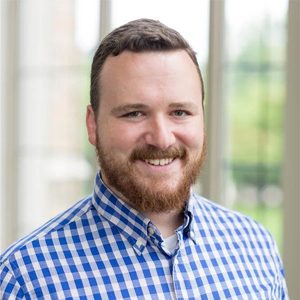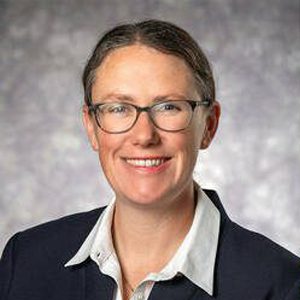The Good Life

Meghan Sullivan and Paul Blaschko, Notre Dame philosophy professors and co-authors of the newly released book The Good Life Method, invite you to join a thoughtful, timely conversation about approaching the new year through the timeless lens of philosophy as self-care.
Meet the Moderator: Ryan Cook

Ryan Cook was a student in Meghan’s 11am section of God and the Good Life during his first semester of freshman year during the fall of 2017. Inspired by his energetic discussion leaders and the mission of the course, he applied to be a GGL Fellow for the following spring semester. He held that role for the next 7 semesters, leading 8pm dialogue sessions every Tuesday night until he graduated. In the summer of 2020, he also worked for Paul as a research assistant on the Mellon Grant which helped benchmark pedagogical techniques and design digitally integrated curriculum at other universities. Ryan graduated last May in 2021 and currently works in Cybersecurity Consulting at EY.
Meet the Faculty: Paul Blaschko

Paul Blaschko is an Assistant Teaching Professor in the Philosophy Department. He is a philosopher and his primary areas of interest are epistemology and action theory. His research focuses on the nature and normative dimensions of deliberative belief formation, but he’s also interested in theories of practical reason and value, the philosophy of religion, and medieval philosophy. Paul is committed to making philosophy publicly accessible and relevant, and in his teaching he emphasizes innovative course design, practical relevance, intellectual formation, and classroom transparency. He received his Ph.D. from the University of Notre Dame in January of 2019. His favorite philosopher is Elizabeth Anscombe.
Meet the Faculty: Meghan Sullivan

Meghan Sullivan is the Wilsey Family Collegiate Professor of Philosophy at the University of Notre Dame and serves as Director of the Notre Dame Institute for Advanced Study. Sullivan’s research focuses on philosophical problems concerning time, modality, rational planning, value theory, and religious belief (and sometimes all five at once). Sullivan is deeply interested in the ways philosophy contributes to the good life and the best methods for promoting philosophical thought. Since 2017, Sullivan and the God and the Good Life team at ND have raised over $1.3M to support projects for research, teaching, and digital outreach in publicly engaged philosophy. Sullivan is the Principal Investigator for the Mellon Foundation’s Philosophy as a Way of Life grant (2018-2021). She is writing a monograph on the role love plays in grounding moral, political and religious reasoning, tentatively entitled Agapism: Moral Responsibility and Our Inner Lives. Her first book, Time Biases (2018), develops a theory of diachronic rationality, personal identity and reason-based planning.
View the Live Event
Subscribe to the ThinkND podcast on Apple, Spotify, or Google.
Featured Speakers:
- Ryan Cook, Alumnus, University of Notre Dame; Cybersecurity Consultant, EY
- Paul Blaschko, Assistant Teaching Professor in the Philosophy Department, University of Notre Dame
- Meghan Sullivan, Wilsey Family Collegiate Professor of Philosophy, University of Notre Dame
Additional Resources
Listen in as Meghan and Paul share 5 key insights from their new book, The Good Life Method: Reasoning Through the Big Questions of Happiness, Faith, and Meaning in this recording from The Next Big Idea Club.
Read along as Professors Meghan Sullivan and Paul Blaschko talk to Shondaland about their new book and how philosophy has always been an essential part of our lives — we just didn’t realize it.
Ch. 1 – Desire the Truth
- The Apology of Socrates – an interactive introduction to Plato’s Apology
- Plato’s Allegory of the Cave – an interactive introduction to Allegory of the Cave by Plato
- What to Believe in Uncertain Times – a microcourse which introduces the concepts of epistemology, offered here on ThinkND
Ch. 2 – Live Generously
- Utilitarianism: John Stuart Mill – An interactive introduction to J.S. Mill’s Utilitarianism
- Crash Course Philosophy: Utilitarianism – A 10-minute explainer video on utilitarianism
- Effective Altruism – A website designed to explain the “effective altruist” movement
Ch. 3 – Take Responsibility
- Anscombe’s Intention: Ethics in Action – An interactive introduction to Anscombe’s Intention and Mr. Truman’s Degree
- Crash Course Philosophy: Moral Luck – A 10-minute explainer on moral luck and responsibility
- MIT’s Moral Machine – A website designed to test moral intuitions in trolley-like cases
Ch. 4 – Work with Integrity
- Work and Identity: Karl Marx and Max Weber – An interactive introduction to Karl Marx and Max Weber
- Karl Marx on Alienation – A 3-minute explainer on the philosophy of Karl Marx
- The Working Life – Paul Blaschko’s course on work and the good life, with numerous resources
Ch. 5 – Love Attentively
- Make Friends: Aristotle – An interactive introduction to Aristotle’s thoughts on friendship
- 36 Questions for Increasing Closeness – To feel more connected, skip the small talk and ask these questions instead.
- “Is it okay to use your friends?” – A 5-minute explainer video by Paul Blaschko on Aristotle’s 3-fold distinction on friendship (see below)
